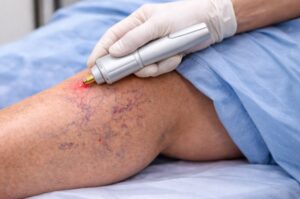Nerve injuries can significantly affect one’s quality of life, causing pain, numbness, muscle weakness, or even loss of function. Whether from trauma, repetitive strain, or underlying health conditions, these injuries often require specialized attention for proper diagnosis and treatment. Seeking expert care from a specialist in nerve injuries is essential to ensuring the best recovery and long-term outcomes.
Why Nerve Injuries Need Specialized Care
Nerves are intricate, responsible for carrying messages between the brain, spinal cord, and the rest of the body. When injured, these delicate structures can severely impact motor functions and sensations. While some nerve injuries may heal on their own, more serious cases need professional intervention to prevent permanent damage.
A specialist in nerve injuries possesses the advanced knowledge and skills required to:
- Accurately diagnose the extent of nerve damage. Nerve injuries can be complex, with varying degrees of severity. A specialist uses a range of diagnostic tools, including nerve conduction studies, electromyography (EMG), and imaging techniques, to assess the injury.
- Provide personalized treatment plans. Every patient’s injury is unique. Specialists develop customized treatment approaches that may include physical therapy, medications, or surgery depending on the injury’s severity.
- Monitor recovery progress. Nerve regeneration is a slow process, and ongoing monitoring is necessary to track healing, adjust treatment as needed, and address any complications.
What to Expect During a Specialist Consultation
When you visit a nerve injury specialist, expect a thorough evaluation. The specialist will take a detailed medical history and perform a physical examination, paying close attention to the affected areas. If further testing is needed, the doctor may order specialized diagnostic tests to pinpoint the location and severity of the nerve damage.
Once a diagnosis is made, the specialist will discuss the available treatment options with you. These may include:
- Non-surgical treatments. For mild or moderate nerve injuries, treatment may involve medications to reduce pain and inflammation, physical therapy to strengthen muscles and improve mobility, and lifestyle modifications to prevent further damage.
- Surgical interventions. In cases of severe nerve injury or when conservative treatments fail, surgery might be recommended to repair or reconstruct the damaged nerves.
- Rehabilitation. Post-treatment, rehabilitation is crucial for rebuilding strength, flexibility, and function in the affected area. A specialist will work with physical and occupational therapists to design a recovery plan that supports your specific needs.
The Importance of Early Intervention
Time is a critical factor in treating nerve injuries. The sooner you seek expert care, the better your chances of minimizing permanent damage and restoring function. Delaying treatment can lead to long-term complications, such as chronic pain or irreversible nerve damage. A nerve injury specialist is trained to intervene early, providing treatments that promote healing and prevent future problems.
How to Choose the Right Specialist
When selecting a specialist for your nerve injury, consider the following:
- Experience and credentials. Look for a board-certified neurologist or orthopedic surgeon with a focus on nerve injuries. Check their experience in treating cases similar to yours.
- Reputation and patient reviews. Research the specialist’s track record by reading reviews from former patients and checking for any disciplinary actions.
- Collaboration with other healthcare providers. Nerve injury treatment often requires a multidisciplinary approach, involving physical therapists, pain specialists, and other healthcare professionals. A good nerve injury specialist works closely with a team to ensure comprehensive care.
Conclusion
If you’re suffering from a nerve injury, don’t wait for it to get worse. Seek out a specialist who can provide the expertise, advanced care, and personalized treatment necessary for optimal recovery. With the right diagnosis and intervention, you can regain control of your health and improve your quality of life. your needs and helps you get back to a pain-free life. Prioritize your health by making an informed choice.







